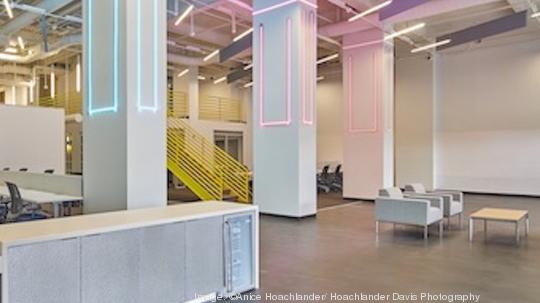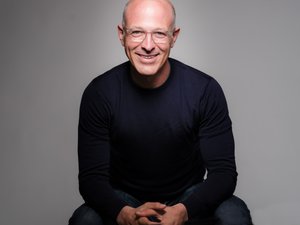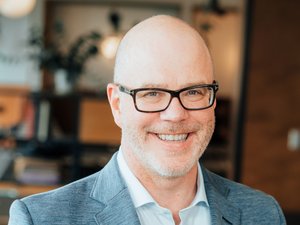
On April 17, the Inclusive Innovation Incubator, or In3, will open its doors to the public for the first time. The space is operated by Luma Lab, the education arm of Clearly Innovative, on Howard University's campus, and its construction is financially backed by the District government.
But the launch has been long in the making, and the project is almost unrecognizable from the first iteration in 2015. Here's what you can expect from the new space:
Timeline:
Initially, Howard and the District planned to build a space on the campus that focused on supporting venture capital investment in minority startups, according to an announcement in 2015. The plan was to attract VC firms that would invest in middle-to-late stage D.C. startups.
Now, the Inclusive Innovation Incubator is focused on attracting minority entrepreneurs or entrepreneurs planning to serve underrepresented communities. And Luma Lab took the helm of the new space in February 2016.
In March 2016, Mayor Muriel Bowser broke ground on the new incubator on Georgia Avenue NW. As with most construction projects, the completion date was pushed back several times. In November, the goal was to open the space by February 2017. When it first launched in its new iteration, the goal was to open the space in Fall 2016.
The official launch is April 17 with a Week of Welcome planned for the entire first week—including a black technologist meet-up and family-friendly events like the Startup Garage bootcamp for high school leaders.
What the space boasts:
Located on Georgia Avenue, the space will include the following features, according to its website:
- 10+ private offices
- 4 class/conference rooms
- 50+ open desks
- 4 private phone booths
- Immersive coding courses
- Soft skill training, such as networking and mock interviews
- Office hours with industry professionals
The incubator also offers three membership plans, and an additional option is in development.
The District government's support:
No doubt, the incubator is a point of pride of the Office of the Deputy Mayor for Planning and Economic Development and Deputy Mayor Brian Kenner. Ahead of SXSW 2017, Kenner told DC Inno that the space is timely and important given the context of Silicon Valley and the general tech industry's lack of diversity problem.
"It was a twinkle in everybody's eye in 2015, and that twinkle was based on what we were seeing in 2015, which was that everyone—companies, cities—everybody was trying to figure out this inclusive innovation angle," Kenner said. "Obviously, media was saying things about Google and other places that were struggling with this idea about the representation gap in Silicon Valley, generally.
"Cities were also very much struggling with this idea."
Funding?
Aaron Saunders, CEO of Luma's parent company, Clearly Innovative, launched the Luma Innovation Foundation for Entrepreneurs in December. When it started, the foundation was aimed at raising at least six-to-12 months of operating funds, as well as 20-30 percent of fees so the team could subsidize entrepreneurs and businesses in need.
Previously, the Mayor's office has provided nearly $1 million in grant funding to the construction of the new space. But once the incubator launches, it will be financially on its own. The Luma Innovation Foundation for Entrepreneurs, or LIFE, is meant to offset those costs. The Washington Business Journal reported in January that the incubator had been struggling to find any corporate sponsors, leaving Clearly Innovative footing the $1.2 million operating budget on its own. It's unclear if that's now changed.
Images courtesy of Wingate Hughes Architects




